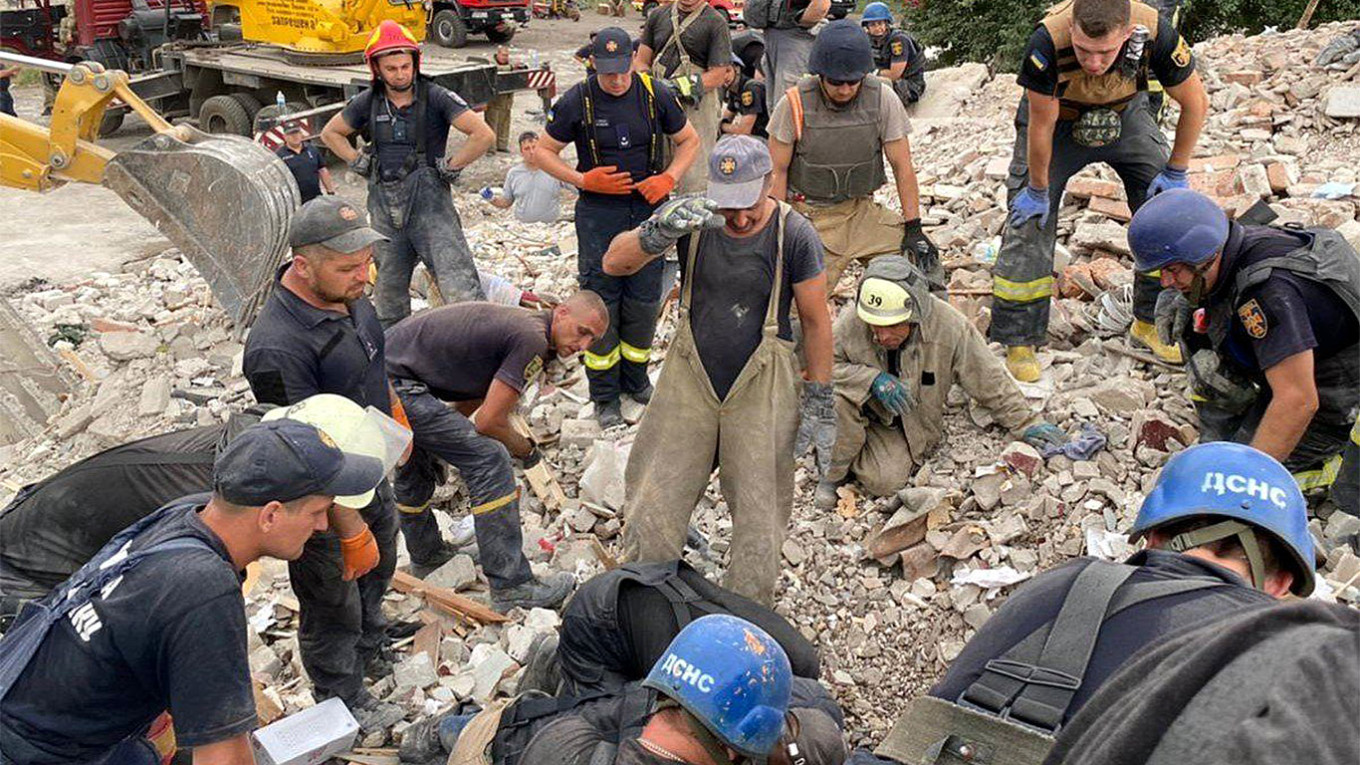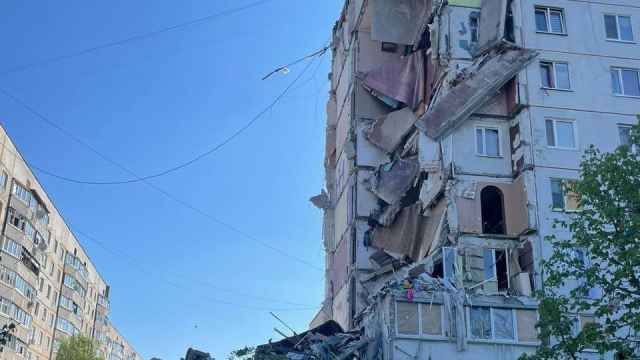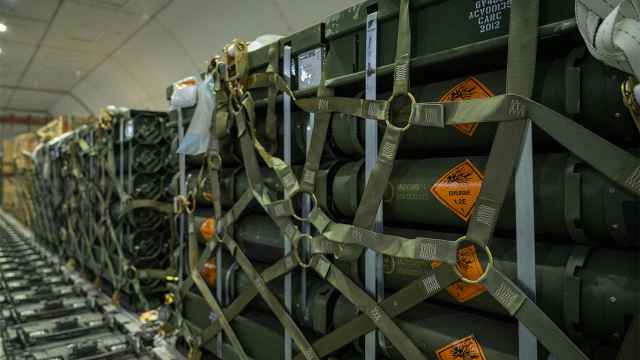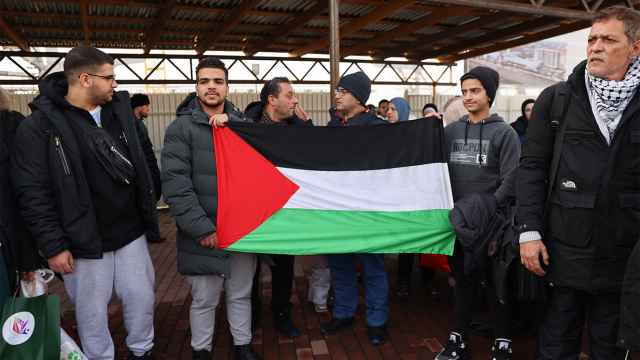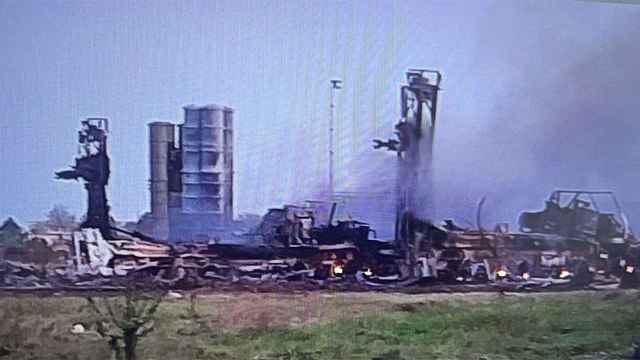Ukraine warned Monday that Russian forces were preparing to intensify their fight for key cities in the Donbas, where the death toll from a weekend attack rose to 26 as rocket strikes killed six in the country's second city.
The attacks in Kharkiv in northeastern Ukraine came as Europe braced for deeper cuts in gas supplies from Russia.
Kharkiv regional chief Oleg Synyegubov said Russian fire on Monday targeted "a shopping center and civilian residences."
Prosecutors in his region said "six civilians were killed, including a 17-year-old and his father, who were driving past" at the time of the attack, according to the Interfax-Ukraine news agency.
In eastern Ukraine — the focal point for a grinding Russian offensive — 26 people were left dead by Russian strikes over the weekend on the town of Chasiv Yar in the Donetsk region, the emergency services said.
Russian Defense Ministry spokesman Igor Konashenkov claimed that "more than 300" Ukrainian combatants had been killed in a Russian strike near Chasiv Yar, without giving a date.
Having fought long battles to capture areas of the eastern Luhansk region, Russian troops are now turning their focus to Donetsk as they look to take control of the whole Donbas.
The eastern region was under persistent shelling, but Russian ground attacks were all but paused, the Ukrainian army said Monday.
'No safe place'
It warned, however, that Russian troops were likely planning to launch some of their heaviest attacks yet in the Donetsk region.
"There are signs of enemy units preparing to intensify combat operations in the direction of Kramatorsk and Bakhmut," it said, referring to two main cities still under Ukrainian control.
Moscow's slow advance into the east — despite fierce Ukrainian resistance emboldened by recent deliveries of Western-supplied artillery — contrasts with their failure to capture the capital Kyiv at the start of the invasion.
Dutch Prime Minister Mark Rutte during a visit to Kyiv said his country would supply Ukraine with more long-range artillery and an aid package worth 200 million euro ($201 million).
"This war may last longer than we all hoped or expected. But that does not mean we can sit back and passively watch how it unfolds. We have to stay focused and continue to support Ukraine in every way," Rutte told a press conference with Ukrainian President Volodymyr Zelensky.
Western weapons — in particular, precision, long-range artillery — were "already changing the course of the war," Secretary of the National Security and Defense Council, Oleksiy Danilov, said earlier Monday.
In Bucha, a town outside Kyiv, 36-year-old web designer Maxim said just three months ago, Russian soldiers were rummaging through his home and sleeping in his children's bedroom.
"In this atmosphere, I feel like nothing can happen and that life is normal," he said, sitting with his family outside his home.
"But we know there's a war and there's no place safe in Ukraine right now."
Gas worries
The repercussions of the conflict were being felt in western Europe as Russian gas giant Gazprom on Monday began more than a week of routine maintenance on its Nord Stream 1 pipeline.
Germany and other European countries cast a worried eye on energy supplies after Italy's Eni and Austria's OMV said Gazprom was further reducing the supply of gas.
Eni said flows were dropping to 21 million cubic meters (741 million cubic feet) per day, down from a recent average of about 32 million, while OMV said it would see a 70% reduction.
After Russia's invasion of Ukraine in February, Germany suspended certification of a second pipeline, Nord Stream 2, as fears grew over Europe's massive dependence on Russian gas.
In a bureaucratic swipe at Kyiv, Russian President Vladimir Putin on Monday signed a decree to fast-track citizenship for all Ukrainians.
The move builds on previous orders — including one issued earlier in the invasion — making it easier for Ukrainians living under Moscow-occupied territory to receive Russian passports.
Putin and his Belarusian counterpart, strongman Alexander Lukashenko, meanwhile discussed possible joint measures against neighbouring Lithuania over its "illegal" transit restrictions affecting Moscow's exclave of Kaliningrad.
The Baltic country last month began to restrict transit of EU-sanctioned goods into Kaliningrad, a Russian region sandwiched between NATO members Lithuania and Poland, infuriating Moscow.
A Message from The Moscow Times:
Dear readers,
We are facing unprecedented challenges. Russia's Prosecutor General's Office has designated The Moscow Times as an "undesirable" organization, criminalizing our work and putting our staff at risk of prosecution. This follows our earlier unjust labeling as a "foreign agent."
These actions are direct attempts to silence independent journalism in Russia. The authorities claim our work "discredits the decisions of the Russian leadership." We see things differently: we strive to provide accurate, unbiased reporting on Russia.
We, the journalists of The Moscow Times, refuse to be silenced. But to continue our work, we need your help.
Your support, no matter how small, makes a world of difference. If you can, please support us monthly starting from just $2. It's quick to set up, and every contribution makes a significant impact.
By supporting The Moscow Times, you're defending open, independent journalism in the face of repression. Thank you for standing with us.
Remind me later.


